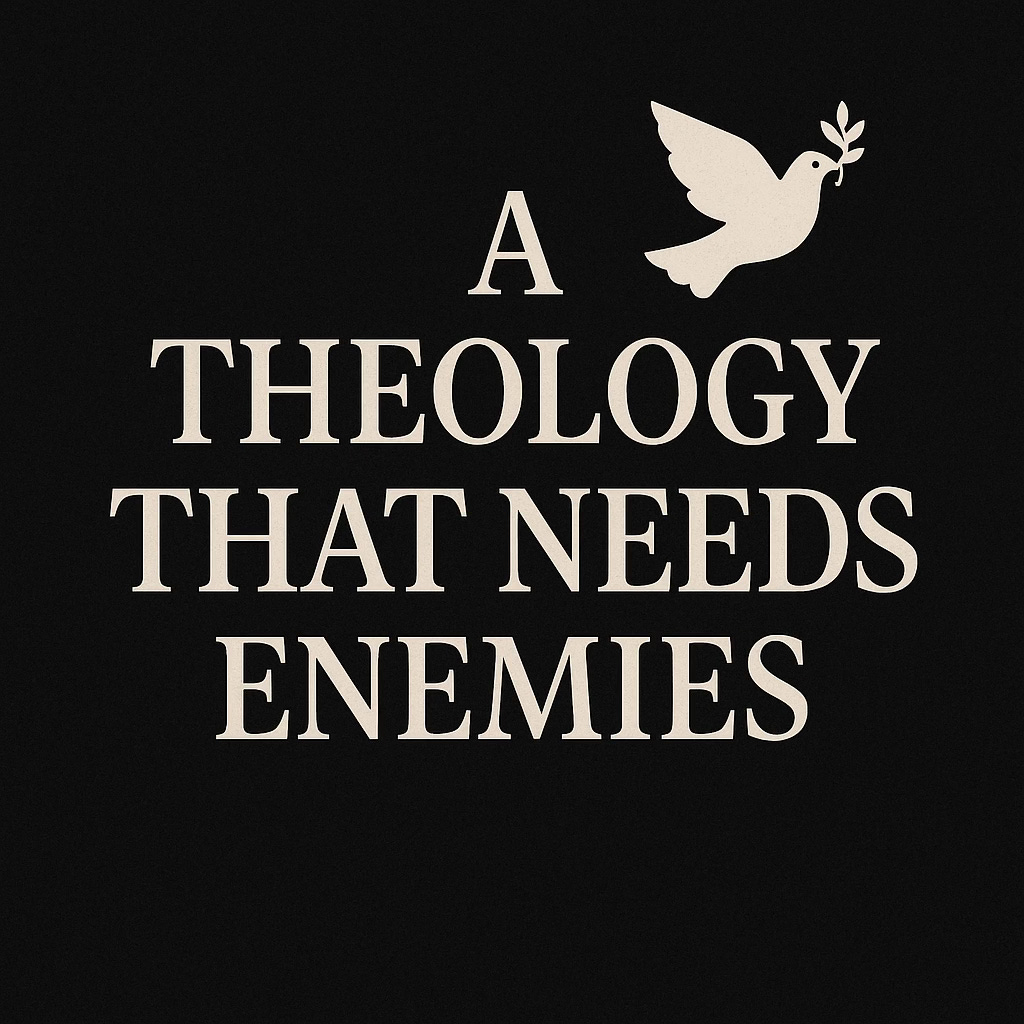Some faiths are built on grace.
Others are built on gratitude.
But Christian Nationalism?
It is built on grievance.
They need to believe they’re under attack—
so they can justify attacking others.
They need enemies—
so they can feel chosen.
This isn’t a coincidence.
It’s not even hypocrisy.
It’s design.
A theology that requires obedience, fear, and punishment must have a villain.
And when there isn’t one, they’ll invent one.
The Persecution Complex
To understand Christian Nationalism, you have to understand the fuel it runs on:
Perceived persecution.
A teacher says “Happy Holidays”?
They’re erasing Christianity.A trans kid wants to use the bathroom?
It’s an attack on women.A drag queen reads to children?
That’s grooming.A church supports refugees?
That’s Marxism.A corporation features a gay couple in an ad?
That’s indoctrination.
The bar is so low that even being asked to share space feels like oppression.
But here’s the truth:
They are not being persecuted.
They are being asked to coexist.
And for a theology built on dominance,
coexistence feels like collapse.
Because if they are not special—
if they are not chosen, righteous, and correct—
then they are just… human.
And human is not enough for people whose God is made of vengeance and pride.
Why Peace Is a Problem
Peace is supposed to be the goal of faith.
But for Christian Nationalism—and the fundamentalist cultures that fuel it—
peace is a problem.
Because peace doesn’t need hierarchy.
It doesn’t need obedience.
It doesn’t need enemies.
And without enemies, the whole system begins to unravel.
I know this not because I read it in a book—
but because I grew up inside it.
In my childhood, everyone was a threat.
The government was corrupt.
The local church was apostate.
The poor were irresponsible.
The rich were prideful.
People who didn’t look or live like us were dangerous.
Most Catholics were considered heretics.
Other Christians were deceived or lukewarm.
Relatives who didn’t believe were to be pitied—or feared.
The USSR was an existential enemy.
Satan was a personal one.
Hollywood was corrupting the culture.
Rock music was demonic.
Big corporations, junk food, TV shows, Halloween—tools of the enemy.
We didn’t just believe in evil.
We were trained to detect it, fear it, and fight it.
Because if evil was everywhere,
then we had a reason to isolate, to obey, to stay small, to stay loyal.
We weren’t just trying to be holy.
We were trying to survive a world full of enemies.
When a system relies on opposition to define itself,
it can’t survive without a scapegoat.
So peace isn’t just inconvenient.
It’s an existential threat.
Because peace asks the question they can’t answer:
If your god isn’t at war with everyone else—
what does He actually stand for?
Manufactured Outrage, Manufactured Identity
Christian Nationalism isn’t reacting to injustice.
It’s performing persecution.
“They’re taking our rights.”
“They’re coming for your kids.”
“They hate Christians.”
“This is spiritual warfare.”
None of it has to be true.
It just has to feel true enough to justify the rage.
Because outrage is a powerful drug.
It creates belonging.
It creates purpose.
It creates an “us” and a “them.”
And when you’ve built your entire worldview around being the remnant—
the last righteous few in a wicked world—
you can’t afford to question the story.
You need to be under siege.
Because if you’re not…
maybe you’re not chosen.
Maybe you’re just angry.
Victimhood as Virtue
When your theology needs enemies,
you will find a way to become the victim—no matter how much power you hold.
A Christian majority becomes a “persecuted” minority.
Billionaires claim censorship if they’re criticized.
Politicians in power warn that they’re being silenced.
Pastors with national platforms claim they’re being attacked by “wokeness” for being held accountable.
Power is never enough when your identity is built on grievance.
So they create new threats daily—drag queens, DEI, solar panels—
anything that can be spun as an attack.
Because if the outrage stops,
so does the movement.
The Enemy of Their God… Is Peace
If peace ever came—
real peace, not domination disguised as order—
the entire system would collapse.
Because peace doesn’t elevate anyone.
It levels the field.
It asks you to sit next to people you’ve been told to fear.
To listen to voices you’ve been trained to silence.
To love people you’ve been told are unworthy.
To become equal with the ones you once called enemies.
That kind of peace is unacceptable
to those who believe they were chosen to rule.
Because if peace is possible,
then war isn’t holy.
Obedience isn’t the highest virtue.
And vengeance isn’t divine.
If peace is possible…
their god disappears.
Because he was never a god of mercy.
He was a monument to fear.
And fear cannot survive in the presence of peace.
NEXT - Resurrection as Resistance: What the Empire Couldn’t Kill




